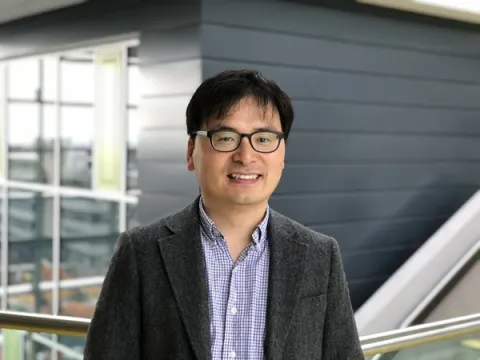About the project
This PhD project develops next-generation multicore fibre amplifiers for sustainable submarine networks. The research combines simulation and experiment to create energy-efficient, high-capacity amplification technologies that reduce power consumption, cost per bit, and enhance future global communication infrastructure.
Optical fibre networks form the backbone for the global internet, carrying over 99% of the world’s data at the speed of light and driving the digital transformation of modern society and industry. As global data demand continue to surge, multicore fibres (MCFs) – fibres containing multiple independent cores within a single cladding – have emerged as the most promising solution to replace conventional bundles of single mode fibres.
MCF cables have started deployment in transoceanic systems, making a paradigm shift in subsea communications. In submarine networks, where both electrical power and space are extremely limited, amplifier efficiency directly constrains overall data capacity. Developing energy-efficient MCF amplifiers is therefore a crucial step toward enabling the next generation of sustainable, high-capacity communication systems.
This PhD project aims to develop next-generation MCF amplifier and component technologies that minimise power consumption, reduce cost per bit, and enhancing overall system capacity.
The research will explore advanced space division multiplexing (SDM) techniques to realise scalable, energy-efficient amplification architectures optimised for long-haul subsea operation.
The project builds on the Optoelectronics Research Centre (ORC) world-leading track record in SDM and amplifier innovation, including:
- development of the world’s first multimode erbium-doped fibre amplifiers
- achievement of a GUINNESS World Record for the highest-capacity SDM transmission
- recipient of the EU HORIZON prize for breakthroughs in optical transmission
- commercialization of SDM amplifier technologies with industry partners.
The successful candidate will perform both simulation and experimental research within state-of-the-art ORC facilities, collaborating with industry leaders (e.g., Corning and NTT), to advance the future of global submarine communication networks.
The School of Optoelectronics (ORC) is committed to promoting equality, diversity inclusivity as demonstrated by our Athena SWAN award. We welcome all applicants regardless of their gender, ethnicity, disability, sexual orientation or age, and will give full consideration to applicants seeking flexible working patterns and those who have taken a career break. The University has a generous maternity policy, onsite childcare facilities, and offers a range of benefits to help ensure employees’ well-being and work-life balance. The University of Southampton is committed to sustainability and has been awarded the Platinum EcoAward.
